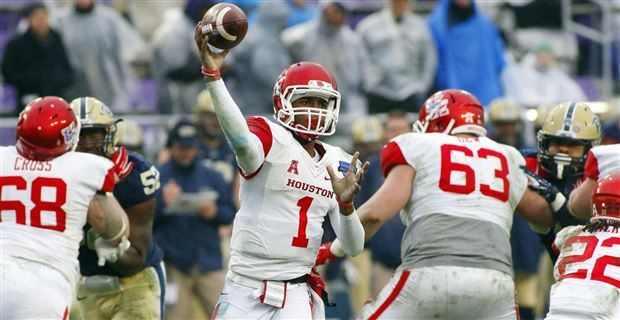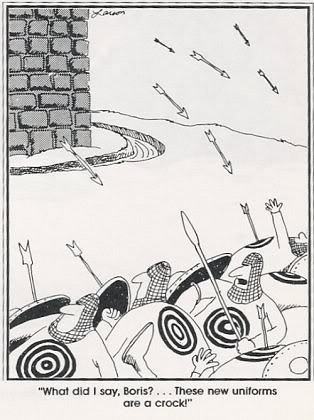Why Houston might not carry over last year’s magic into 2016

http://247sports.com/Bolt/Why-Houston-might-not-carry-over-last-years-magic-into-2016-46059682
.
Why Houston might not carry over last year’s magic into 2016

http://247sports.com/Bolt/Why-Houston-might-not-carry-over-last-years-magic-into-2016-46059682
.
Stopped reading at Hermann and Cradle Jones.
Interesting, we do have to be realistic. Of course, the statistics shown in the article don’t consider the amount of injuries we had. However, at the end of the day a Win is still a Win. Let’s go 1-0 every week.
This guy’s modeling for preseason predictions is crappy. One can tell by the fact given at the end where he says that "whose college football model went 54.1% picking every FBS game against the spread over the last two months of the 2015 regular season."
Essentially that says it is pretty good… after getting one third of the current season’s data into the mix.
Ignore it until then.
Sorta reminds moi of the famous Larson cartoon …

Going 13 - 1 and beating FSU and we expect to be INCONSPICUOUS in 2016 … maybe …
Pre-season modeling has to be hard to do for college, not enough data of how the team actually would perform together. They don’t have any pre-season games really.
Any model that predicts us to win only 6 games this year should be tossed in a dumpster along with most other preseason predictions. I can be realistic about this season without thinking we’ll barely drag ourselves into bowl contention. Not only does it not consider injuries from last year, it apparently doesn’t consider incoming talent this year. Despite losing some good leaders, I would argue several units will be better this year than last year, including OL, WR and RB.
So if we by his statistics played worse than Kansas in the last five games of 2015, how is it possible we went 4-1 when they went 0-5?
Also, he’s a UT grad. Explains it all.
Christian Corona
@ChristianC0rona
UT graduate.
And we played against ranked teams too.
UT graduate? How - ever - would one suspect that? 
From the article:
“But in its last five games before the impressive bowl win over the Seminoles, Houston averaged just a 31.76 Game Score. For reference, 0-12 Kansas had the worst average Game Score in the nation last year at 35.99.”
That alone should tell you that their metrics and methods are a crock.
Exactly. Why is there no link to these “metrics?”
Edit to add: Game score is basically “game control.” A team that leads for most of the game may score higher than a team that did not. It also takes into account who you are playing as well if you are home/road as well as yardage totals (while chalking turnovers up to luck). Has nothing to do with winning or losing the game, just whether the stats “believe” that you should have won based on what it perceives to be a winning formula. These scores are not readily available online.
So looking at our last 5 games (Cincy, Memphis, UCONN, Navy, and Temple), it’s no surprise why our game score was so low in these games. First, we were at home for all except the UCONN game. We were outgained by quite a bit of yardage in the Cincy and Temple games, were losing most of the Memphis game at home, and lost the UCONN game in an ugly fashion. Lastly, we were not a team that ran up the score at the end while also relying quite a bit on turnovers.
So what does this have to do with next year’s prospects? Jack and Squat. Never mind the fact that game score doesn’t take outside factors such as injuries, rest, etc into consideration, it is also using information from last year’s team. The author then goes on to try to mesh game score info from an arbitrary set of data points, while dismissing another arbitrary set of data points, with info such as returning starters and a “rank” that he doesn’t really go into specifics about. This is a nightmare of trying to use data to prove your point (Doesn’t think Houston will be as good) without having a clue about what data he’s using and why. Basically, it would be like a baseball writer projecting team wins based on how few pitches that team threw in games 100-140 of the previous season, how many players came back from that team, and how well it’s draft classes were the previous 5 seasons.
©Copyright 2017 Coogfans.com